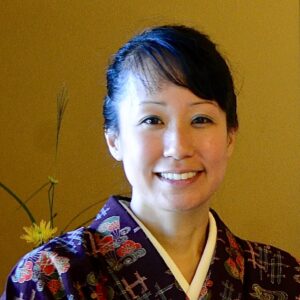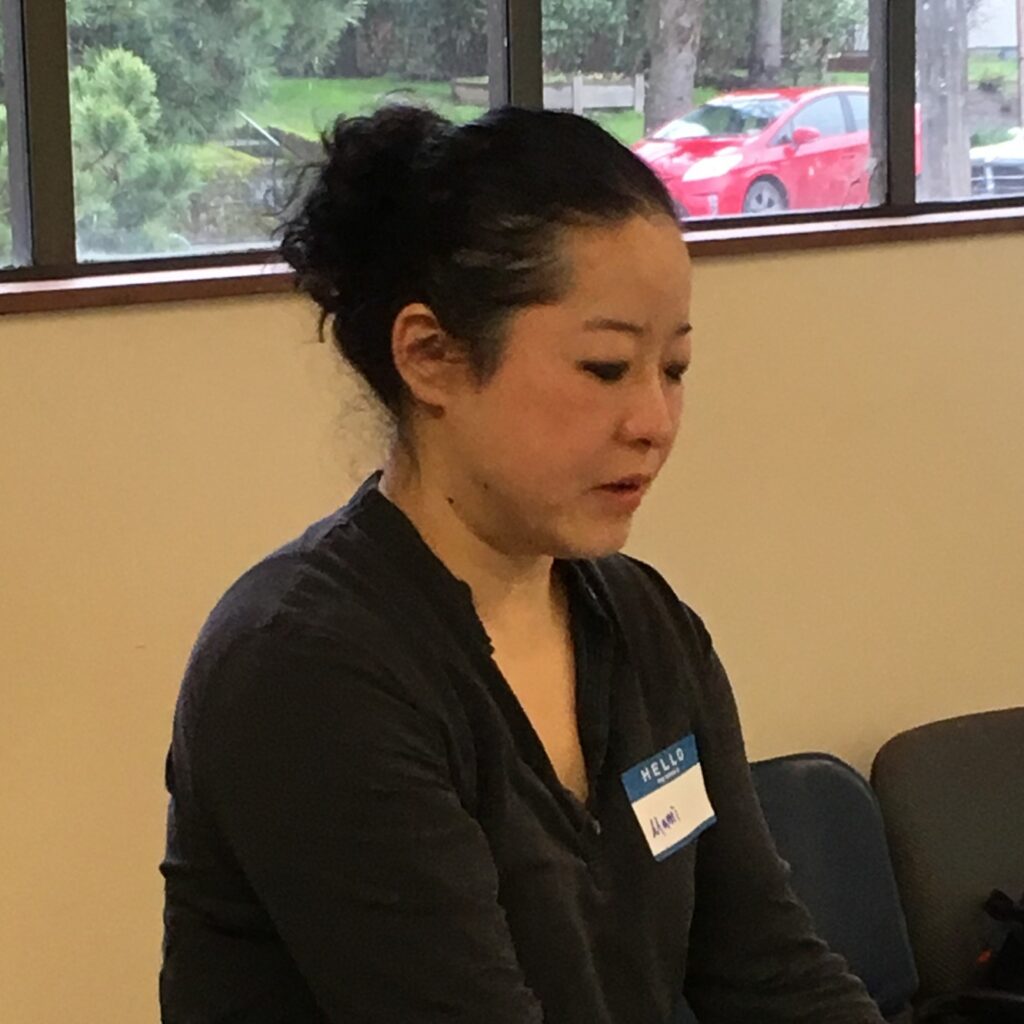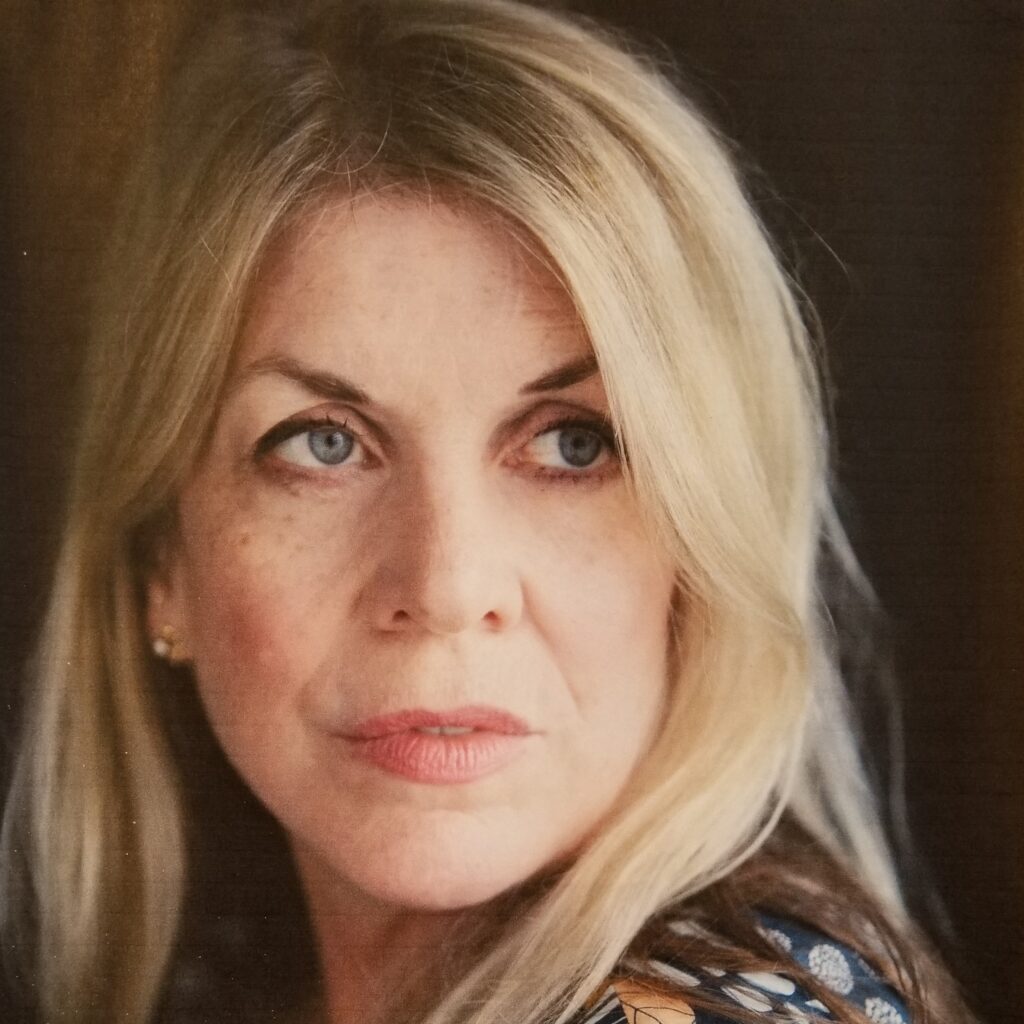
Thursday, April 18, 2024
Tim Gruner, Garden Curator & Head of Horticulture
7:00 PM Lecture | Members – Free | Non-Members $5 | Pre-Registration Required | Limited Spaces Available
Anderson Japanese Gardens West Waterfall; a look back on its 35th anniversary
In the spring of 1989 the first boulders were placed at the base of the West Waterfall. Join Garden Curator Tim Gruner as we look back 35 years at the planning, engineering, and birth of this major landscape.
Tim Gruner graduated from Kishwaukee College’s Horticulture program in 1987. After graduation, he spent one year as a horticultural intern at Chicago Botanic Garden followed by a year as a grower for the All-American Selection trial at Kishwaukee College. He began working at Anderson Japanese Gardens in 1989 and eventually worked his way up to Garden Curator. He oversees all construction and horticulture activities within the Gardens. He currently serves on the Board of Directors of the North American Japanese Garden Association.

Thursday, May 16, 2024
Bob Downs
7:00 PM Lecture | Members – Free | Non-Members $5 | Pre-Registration Required | Limited Spaces Available
Niwado – The Way of a Japanese Garden to Well-Being
Japanese Gardens with their unique features and choreographed pathways are designed to slow down and engage visitors in the natural surroundings. The rich sensory experience of being in a Japanese Garden ca restore a sense of calm and peacefulness.
Niwado: The Way of a Japanese Garden explores the cultural aesthetic principles and spiritual philosophies underlying Japanese garden design and maintenance which provide insight into mental attitudes, ways of seeing the world, and skills for practicing well-being in one’s daily life.
Bob Downs has been volunteering for thirteen years as a gardener at Como Ordway Japanese Garden and five years at Normandale Japanese Garden. He was a Licensed Marriage and Family Therapist in Minnesota for thirty years. Bob worked for ten seasons with the National Park Service as an Interpretive Ranger and has volunteered in remote locations of the Grand Canyon and Canyonlands National Parks. Bob recently presented a workshop at the North American Japanese Garden Association conference on the interpretation of Japanese Gardens.

Thursday, June 20, 2024
Jennifer Gunji, Director of the University of Illinois Japan House
7:00 PM Lecture | Members – Free | Non-Members $5 | Pre-Registration Required | Limited Spaces Available
Omotenashi
Professor Jennifer Gunji-Ballsrud’s presentation will focus on the understanding of “Omotenashi”, which is the practice of hospitality in Japan so deeply rooted that it manifests as a cultural philosophy. It is the sincere and wholehearted addressing of the needs and care of guests.
Omotenashi is best represented in the iconic cultural practice of chanoyu or chado, the way of tea, as established 400 years ago by the great tea master, Sen Rikyu. Following her presentation, Professor Emeritus Kimiko Gunji will conduct a Japanese Tea Ceremony to illustrate the concept of Omotenashi.
Jennifer Gunji-Ballsrud has been Director of the University of Illinois Japan House for the past 13 years. She has developed course offerings for both University students and the community, providing hands-on experiences to learn about Japanese aesthetics through the Chado, Shodo, Ikebana, Wagashi making, and much more. She has established an internship program and Japanese Aesthetics Minor, which is the first of its kind across the US. She continues to strive for new opportunities to encourage and deepen the understanding of cultural diversity through the lens of traditional Japanese Arts and culture.
Kimiko Gunji, Professor Emeritus of the University of Illinois has been a regular presenter and lecturer for the Anderson Japanese Garden since 2012. She has given season-by-season tea ceremony demonstrations, and various Japanese art-related workshops such as wagashi (Japanese Sweet) making, kimono dressing, and Japanese cooking. She was a special presenter for the Regional North American Japanese Garden Association seminar, Kokoro and the Gardener: Health for Spirit, Body, and Community hosted by the Anderson Japanese Garden from August 4 through August 8, 2022.

Thursday, July 18, 2024
Charo D’Etcheverry, Professor of Classical Japanese Literature. Chair, Department of Asian Languages and Cultures. Director, International Learning Community.
7:00 PM Lecture | Members – Free | Non-Members $5 | Pre-Registration Required | Limited Spaces Available
Genji in the Garden: Love, Politics, and Plants
How are lovers like flowers? What can fictional landscapes tell us about life? In this interactive talk about the gorgeous gardens described in The Tale of Genji (c. 1020), Japan’s most famous story, we’ll explore how early Japanese aristocrats used plants to discuss people as well as political threats. Given the timing of this event, we’ll also consider the special significance of summer gardens in Genji – particularly the role of the garden at night.
Charo D’Etcheverry teaches various things at UW-Madison, including courses on The Tale of Genji, Japanese Ghost Stories, and Forest-Bathing (the last as a partially trained guide and amateur enthusiast). She is the author of two books about Japanese literature and the proud co-creator of a messy backyard garden filled with vegetable planters, fruit trees, and urban chickens – none of which do what she wants.

Thursday, August 15, 2024
Mami Takahashi
7:00 PM Lecture | Members – Free | Non-Members $5 | Pre-Registration Required | Limited Spaces Available
Nature and Seasons in Rimpa Paintings
The Rimpa School was a key part of the Edo period (1615-1868) revival of indigenous Japanese artistic interests. Paintings, textiles, ceramics, and lacquerware were decorated by Rimpa artists with vibrant colors applied in a highly decorative and patterned manner. They are known for simple natural subjects such as birds, plants, and flowers, with the background filled in with gold leaf. By looking at images of samples of Rimpa paintings and lacqur works, Japanese artist scholar, Mami Takahashi will showcase this dynamic style of art from 17-19 century in Japan.
Mami Takahashi received her MFA in Contemporary Studio Practice from Portland State University and earned a BFA in Japanese Painting from Joshibi University of Art and Design in Japan. She has been a research artist and scholar at various places, including the University of Oregon, focusing on the conceptual understanding of Japanese aesthetics. Her artwork also has been collected and exhibited internationally.

Thursday, September 19, 2024
Sarah Thal
7:00 PM Lecture | Members – Free | Non-Members $5 | Pre-Registration Required | Limited Spaces Available
Chivalry, Stoicism, and the Way of the Samurai in Modern Japan
The Way of the Samurai (bushido) is often seen as a centuries-old traditional code of Japan’s elite warrior class. However, not only did the idea of a distinct Way of the Samurai only originate around 1600, but proponents also reinvented it in the 1890s and early 1900s, decades after the samurai had ceased to exist as a social group, and when Japan had become a modern, constitutional monarchy. In this talk, we examine how and why many Japanese reimagined and promoted the Way of the Samurai for their modern age.
Sarah Thal teaches Japanese history at UW-Madison, with an emphasis on religious and intellectual history. Her first book, Rearranging the Landscape of the Gods, examines changes in a popular pilgrimage site from the 16th to the early 20th century.

Thursday, October 17, 2024
Patricia Larkin Green
7:00 PM Lecture | Members – Free | Non-Members $5 | Pre-Registration Required | Limited Spaces Available
4 Nobles and 4 Treasures
“The Four Gentlemen” (四君子), or Four Noble Ones refer to: the plum (梅), the orchid (蘭), the bamboo (竹), and the chrysanthemum (菊). Filled with symbolism, they are common subjects in traditional ink and wash painting, belonging to the category of bird-and-flower painting in Chinese art.
“Four Treasures of the Study” 文房四宝 bunbō shihō: the brush 聿 (fude), ink 墨 Boku, ink stone 硯 (suzuri), and traditional paper 和紙 (Washi), are The Traditional Tools for Sumi-e and Shodo. Invented in China, thousands of years ago, the tools are fundamental to Asian art and culture, each recognized by UNESCO to be recognized and preserved as essential to the cultural heritage.
A lively discussion with examples of the tools and paintings will be presented by Patricia Larkin Green.

Thursday, November 21, 2024
Tim Gruner, Garden Curator & Head of Horticulture
7:00 PM Lecture | Members – Free | Non-Members $5 | Pre-Registration Required | Limited Spaces Available
A Year in Review
Join Tim Gruner as he discusses the “insider’s view” of Anderson Japanese Gardens. Gruner will look back at the many factors that influenced the Garden over the last twelve months. He will share the routine and not-so-routine, from winter to fall, weather patterns, and special projects – they all have an impact on the Garden.
Tim Gruner graduated from Kishwaukee College’s Horticulture program in 1987. After graduation, he spent one year as a horticultural intern at Chicago Botanic Garden followed by a year as a grower for the All-American Selection trial at Kishwaukee College. He began working at Anderson Japanese Gardens in 1989 and eventually worked his way up to Garden Curator. He oversees all construction and horticulture activities within the Gardens. He currently serves on the Board of Directors of the North American Japanese Garden Association.
